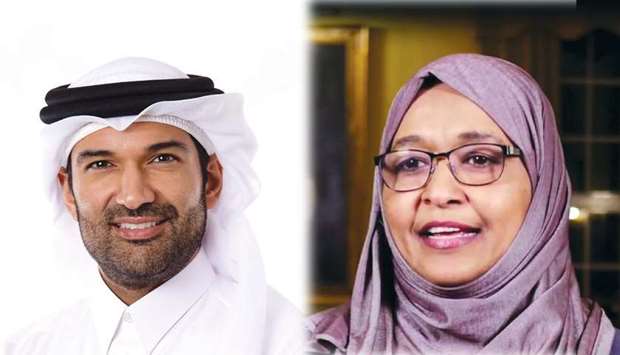Sidra Medicine, a member of Qatar Foundation, aims to bring precision genomic medicine to the healthcare landscape in Qatar especially in the case of rare diseases in children. Sidra Medicine currently performs genome sequencing for patients across a wide range of research studies.
Genome sequencing is the practice of decoding a genome – which is an organism's complete set of DNA including all of its genes. It is a valuable diagnostic tool that allows researchers to determine if any disease-causing mutations are present. “Sidra Medicine is an academic medical centre where education, research and clinical practice converge to deliver the best care for women and children.
It’s where scientists and doctors work alongside each other, supported by cutting-edge technologies, to help find answers, and give our patients hope and confidence where it may not have been seen before,” said Dr Khalid Fakhro, acting chief research officer at Sidra Medicine and director of its Precision Medicine Programme.
In July 2019, a baby suffering from severe infections and poor muscle tone since birth visited Sidra Medicine.
Frequent infections had resulted in injuries to her gut and lungs, due to which she repeatedly required assisted ventilation. The child underwent clinical genetic testing by sending their samples abroad to a commercial lab; however, the mutations identified were not particularly known to be disease-causing.
The patient was then referred to research. In a multidisciplinary effort, Dr Amel Hassan, senior attending physician in allergy and immunology, and Dr Bernice Lo, principal investigator in human genetics, both at Sidra Medicine studied the patient’s white blood cells. They found that the patients’ immune function was impaired and that a variant in the gene ORAI1 could explain the child’s condition.
Further investigation, in collaboration with Dr Khaled Machaca’s lab at Weill Cornell Medicine in Qatar, confirmed that the mutation present in ORAI1 causes a functional defect. Fortunately, there is already treatment available for ORAI1-related immune deficiency. Within days, the child was put on a new treatment plan, which significantly improved her clinical condition until she was healthy enough to leave the hospital for the first time in seven months.
Dr Hassan said, “If left untreated, this condition would have resulted in the passing away of the child before her second birthday.
There are different options of potentially curative treatments but defining the exact molecular or genetic defects is crucial in tailoring the appropriate treatment, maximising chances of survival, and improving quality of life. “Working closely with a dedicated research team enabled us to confirm the diagnosis and explain to the parents the reason behind their child’s clinical symptoms.
Having successfully diagnosed her condition, we were then able to administer a targeted treatment, which allowed her to finally leave the hospital, after having been an inpatient for seven months. “The ability to perform genetic testing at Sidra Medicine allowed us to diagnose the child’s condition in a timely manner thereby preventing the risk of multi-organ complications, which could have proved to be fatal.”
Rare diseases are predominantly caused by genetic mutations. Over 50% of rare diseases affect children, 30% of whom die before the age of five due to a lack of diagnosis and treatment options. Genomic medicine is key to unlocking the cause of rare diseases, and to prescribing appropriate treatment in the future. “We have established a centre of excellence in genomic medicine.
In the coming years, we aim to make genome sequencing available to all our patients. Imagine every patient having their genome sequenced and already in their medical record. We can then predict disease risk, know a patient’s drug sensitivities, and tailor treatment to an individual’s genome. That would be transformational; that is true Precision Medicine,” Dr Fakhro added.

